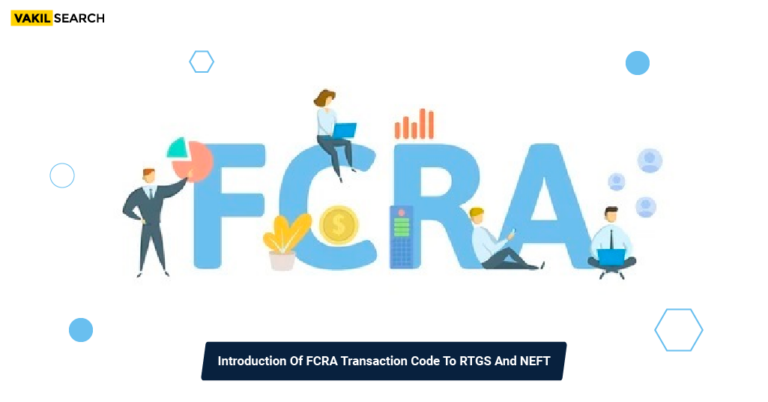Learn how collaboration and partnerships are essential for the success of NGOs. Read about examples of successful partnerships in the NGO sector and the role of support services in facilitating these collaborations.
Non-Governmental organizations (NGOs) play a critical role in addressing social, economic, and environmental challenges in communities around the world. However, setting up and running an NGO is not an easy task. It requires significant resources, time, and effort. Collaboration and partnerships with other organizations can help to ease the burden and increase the impact of NGOs. In this blog, we will explore the importance of collaboration and partnerships in NGO registration
Collaboration and Partnerships: Definition and Benefits
Collaboration is a process of working together with others to achieve a common goal. Partnerships are formal or informal relationships between organizations that share common goals or interests. Collaborating and partnering with other organizations can offer many benefits for NGOs, including:
- Resource Sharing: Collaborating with other organizations can help NGOs to share resources, such as staff, expertise, and funding, leading to more efficient and effective use of resources.
- Increased Impact: Partnering with other organizations can help NGOs to reach a wider audience and achieve greater impact. By working together, NGOs can combine their strengths and expertise to address complex challenges.
- Knowledge and Expertise Sharing: Collaborating and partnering with other organizations can help NGOs to share knowledge and expertise. This can lead to more innovative solutions and greater learning.
- Improved Sustainability: By collaborating and partnering with other organizations, NGOs can build stronger networks and partnerships, leading to greater sustainability and long-term impact.
Key Considerations When Collaborating and Partnering with Other Organizations
When collaborating and partnering with other organizations, NGOs should consider the following:
- Mission Alignment: NGOs should collaborate and partner with organizations that share similar missions and values. This ensures that the partnership is mutually beneficial and effective in achieving common goals.
- Capacity and Resources: NGOs should assess their own capacity and resources before collaborating and partnering with other organizations. This ensures that they can meet the commitments of the partnership and contribute effectively to the collaboration.
- Communication and Coordination: Effective communication and coordination are critical for successful collaborations and partnerships. NGOs should establish clear lines of communication, roles and responsibilities, and decision-making processes.
- Trust and Respect: Collaborations and partnerships are built on trust and respect. NGOs should prioritise building relationships with partner organisations based on mutual trust and respect.
- Legal and Financial Considerations: NGOs should consider the legal and financial implications of collaborations and partnerships, including contractual obligations and liability.
Examples of Successful Collaborations and Partnerships in the NGO Sector
Collaboration and partnerships are not new concepts in the NGO sector. Many successful collaborations and partnerships have led to a significant impacts on various social and environmental issues. Below are some examples of successful collaborations and partnerships in the NGO sector:
- The Global Polio Eradication Initiative: The Global Polio Eradication Initiative is a partnership between the World Health Organisation, UNICEF, Rotary International, and the Centers for Disease Control and Prevention. Since its launch in 1988, the initiative has helped to reduce the number of polio cases by over 99%. The partnership brings together resources, expertise, and networks from different organizations to tackle the global challenge of eradicating polio.
- The Red Campaign: The Red Campaign is a partnership between the NGO, Product (RED), and major brands like Apple, Coca-Cola, and Nike. The campaign aims to raise awareness and funds for the fight against HIV/AIDS in Africa. A percentage of the sales of RED-branded products is donated to the Global Fund to Fight AIDS, Tuberculosis, and Malaria. The partnership has raised over $700 million since its launch in 2006.
- The Water and Sanitation Program: The Water and Sanitation Program is a partnership between the World Bank and several NGOs working on water and sanitation issues, including WaterAid and the World Health organisation. The program aims to improve access to clean water and sanitation for communities in developing countries. Through its partnerships with local governments and NGOs, the program has helped to provide access to clean water and sanitation facilities to millions of people.
- The Global Alliance for Vaccines and Immunisation (GAVI): The Global Alliance for Vaccines and Immunisation is a partnership between the World Health Organisation, UNICEF, the Bill and Melinda Gates Foundation, and several other organizations. The partnership aims to increase access to vaccines and immunization programs in developing countries. Since its launch in 2000, the partnership has helped to immunize over 760 million children and prevent over 13 million deaths.
- The Global Fund for Children: The Global Fund for Children is a partnership between the private sector and NGOs working on children’s rights issues. The fund provides grants to grassroots organizations that work directly with children and youth in developing countries. Through its partnerships with local NGOs, the fund has helped to support thousands of initiatives focused on education, health, and protection for children.
These examples highlight the power of collaboration and partnerships in achieving impact in the NGO sector. By pooling resources, expertise, and networks, organizations can tackle complex challenges and make a significant difference in the lives of people around the world.
Conclusion
It’s worth noting that in addition to NGOs, there are also organisations that support and facilitate partnerships and collaborations within the sector. One such example is Vakilsearch, an Indian legal tech company that provides legal and regulatory compliance services to NGOs and social enterprises. By helping these organizations navigate complex legal and regulatory requirements, Vakilsearch enables them to focus on their core mission of creating positive social impact. Such support services can play a vital role in facilitating successful collaborations and partnerships, allowing NGOs to work more efficiently and effectively toward their goals. Ultimately, it is through such partnerships and collaborations that we can collectively address the most pressing social and environmental challenges of our time and create a better future for all.
FAQs
What do NGOs need to be successful?
NGOs require a strategic vision, dedicated leadership, and sustainable funding to be successful. A clear mission, effective communication, and impactful projects that address community needs are essential. Additionally, building strong partnerships with stakeholders and maintaining transparency contribute to the overall success and credibility of NGOs.
Can NGOs collaborate with the government?
Collaboration between NGOs and the government is crucial for addressing complex societal issues. This partnership can enhance the reach and impact of initiatives, leveraging resources and expertise. Effective communication, shared goals, and a mutual understanding of roles help foster successful collaborations that create positive and lasting change.
What is an NGO partnership system?
An NGO partnership system involves establishing collaborative relationships with other organisations, government bodies, and private sectors to amplify the impact of their initiatives. This system fosters resource-sharing, expertise exchange, and a collective approach to addressing social challenges, promoting a more comprehensive and sustainable impact on communities.
What do NGOs need to be successful?
Success for NGOs hinges on a multifaceted approach. A compelling mission, effective leadership, financial stability, and community engagement are vital. Furthermore, fostering partnerships with diverse stakeholders, including government agencies, corporations, and grassroots organisations, bolsters an NGO's capacity to create meaningful and lasting change.
Can two NGOs have the same name?
Generally, two NGOs cannot have the same name to avoid confusion and maintain clarity in the sector. Legal and regulatory frameworks often mandate unique identifiers to differentiate organisations. Ensuring distinct names prevents overlap, enables accurate representation, and helps stakeholders, including donors and beneficiaries, easily recognise and distinguish between NGOs.
Why is it important for organisations to build partnerships?
Organisations, including NGOs, benefit significantly from building partnerships as it amplifies their impact and effectiveness. Collaborations facilitate resource-sharing, enhance expertise, and broaden the scope of projects. In an interconnected world, partnerships foster innovation, efficiency, and the ability to address complex challenges collectively, promoting sustainable and holistic solutions.










